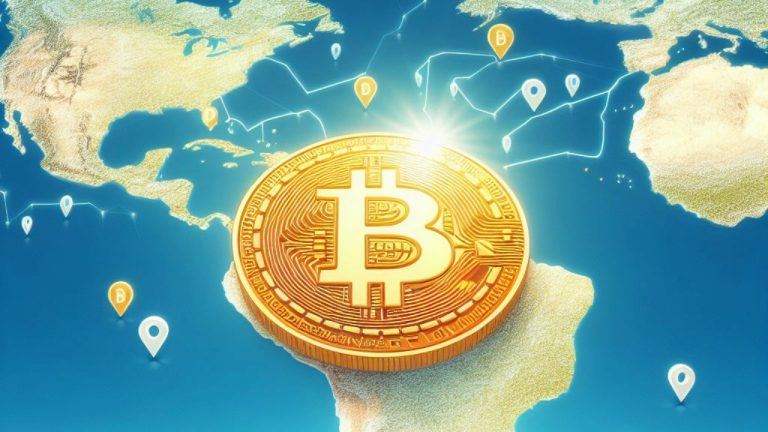 Welcome to Latam Insights, a compendium of Latin America’s most relevant crypto and economic news during the last week. In this issue: President Nayib Bukele eliminated import taxes for basic products for a decade in El Salvador, Argentina defined rules for regularizing cryptocurrency assets, and OFAC sanctioned the Venezuelan gang Tren de Aragua. President Bukele […]
Welcome to Latam Insights, a compendium of Latin America’s most relevant crypto and economic news during the last week. In this issue: President Nayib Bukele eliminated import taxes for basic products for a decade in El Salvador, Argentina defined rules for regularizing cryptocurrency assets, and OFAC sanctioned the Venezuelan gang Tren de Aragua. President Bukele […]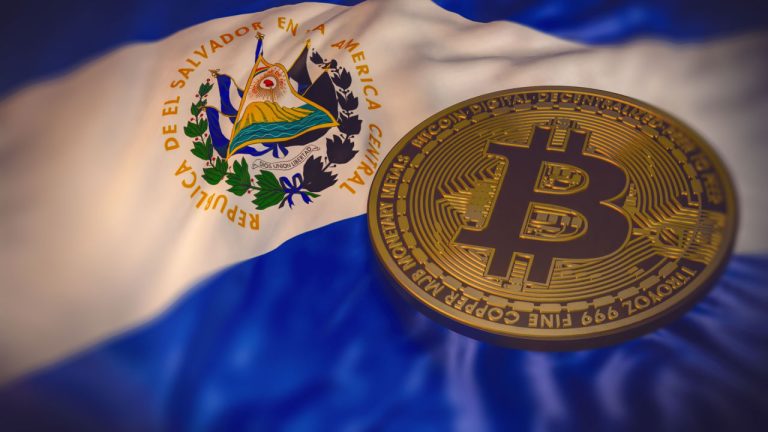 President Nayib Bukele is promoting El Salvador as the “new land of the free,” as part of an invitation for foreigners to move to the Latam country. Bukele tweeted a poster in vintage American style that included several advantages that the country brings its citizen, including the adoption of bitcoin as legal tender. EL Salvador’s […]
President Nayib Bukele is promoting El Salvador as the “new land of the free,” as part of an invitation for foreigners to move to the Latam country. Bukele tweeted a poster in vintage American style that included several advantages that the country brings its citizen, including the adoption of bitcoin as legal tender. EL Salvador’s […]
The “Digital Asset Issuance” legislation will also create a regulatory body and establish a legal framework for all digital assets.
El Salvador has passed landmark legislation providing the legal framework for a Bitcoin-backed bond — known as the “Volcano Bond” — that will be used to pay down sovereign debt and fund the construction of its proposed “Bitcoin City”.
The bill passed on Jan. 11 with 62 votes for and 16 against, and is set to become law after it is ratified by President Bukele.
#Plenaria90✍ Con 62 votos a favor, creamos la Ley de Emisión de Activos Digitales. pic.twitter.com/g1poXwLoH3
— Asamblea Legislativa (@AsambleaSV) January 11, 2023
The National Bitcoin Office of El Salvador announced the passage of the bill in a Jan. 11 Twitter thread, noting that it would begin issuing the bonds soon.
3/ El Salvador is the epicenter of Bitcoin adoption, and thus, economic freedom, financial sovereignty, censorship resistance & unconfiscatable wealth.
— The Bitcoin Office (@bitcoinofficesv) January 11, 2023
When we issue the first of the volcano bonds, we will once again be blazing the path forward for this new monetary revolution.
According to crypto exchange Bitfinex, which is the technology provider for the bonds, the Volcano Bond — or Volcano Tokens — would allow El Salvador to raise capital to pay down its sovereign debt, fund construction of the Bitcoin City and create Bitcoin mining infrastructure.
The volcano descriptor for the bonds is derived from the location of the country’s Bitcoin City, which is set to become a renewable crypto-minin hub powered by hydrothermal energy from the nearby Conchagua volcano.

Bitfinex notes that the city would be a special economic zone similar to those seen in China, which would offer tax advantages, crypto-friendly regulations and otherwise incentivize Bitcoin businesses for its residents.
The bonds have been targeted to raise $1 billion for the country, with half of it going into building the special economic zone.
According to the initial proposal, the tokenized bonds would be denominated in U.S. dollars, have a ten-year maturity date and carry an annual interest rate of 6.5%.
Related: Bitcoin, Sango Coin and the Central African Republic
Samson Mow, a Bitcoin proponent who has been involved in the development of the Volcano Token, told Cointelegraph that the bill’s passage could help turn the country into a “major” financial hub.
“The move to pass the new Digital Securities Law, and enable new instruments like the Bitcoin Bonds, will help El Salvador to pay off their existing debts and will be critical to transforming the country into a major financial center of the world.”
The bill also includes a legal framework for all digital assets that are not Bitcoin, in addition to those issued on Bitcoin, and creates a new regulatory agency that will be in charge of applying the securities law and providing protection from bad actors.
5/ The new legislation also creates the National Digital Assets Commission, the regulating agency in charge of applying the securities law and protecting the rights of digital asset purchasers as well as issuers in El Salvador, and of deterring fraudsters from operating here.
— The Bitcoin Office (@bitcoinofficesv) January 11, 2023
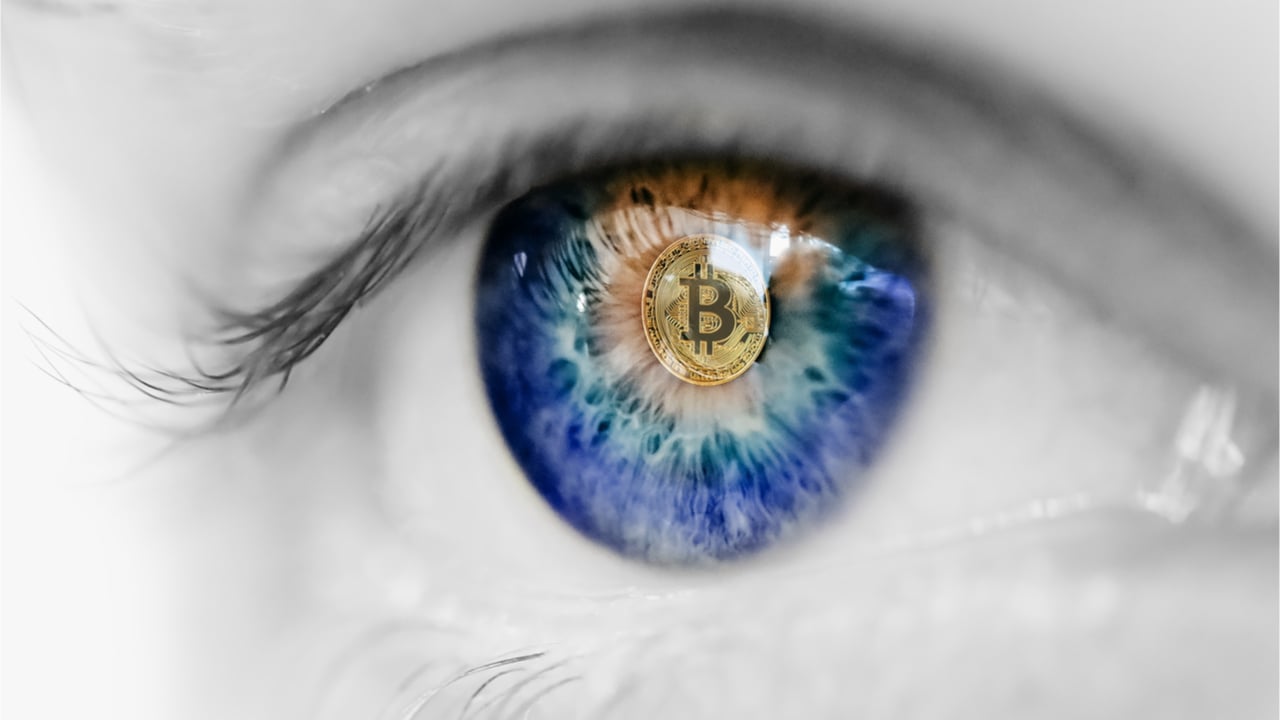 As sanctioned Russia’s fiat currency soars in value against the U.S. dollar, and crypto markets remain unpredictable, economists and crypto enthusiasts continue to puzzle and debate over what the next market move will be. In spite of this, several influential voices remain unperturbed when it comes to the future of decentralized digital assets, with Salvadoran […]
As sanctioned Russia’s fiat currency soars in value against the U.S. dollar, and crypto markets remain unpredictable, economists and crypto enthusiasts continue to puzzle and debate over what the next market move will be. In spite of this, several influential voices remain unperturbed when it comes to the future of decentralized digital assets, with Salvadoran […]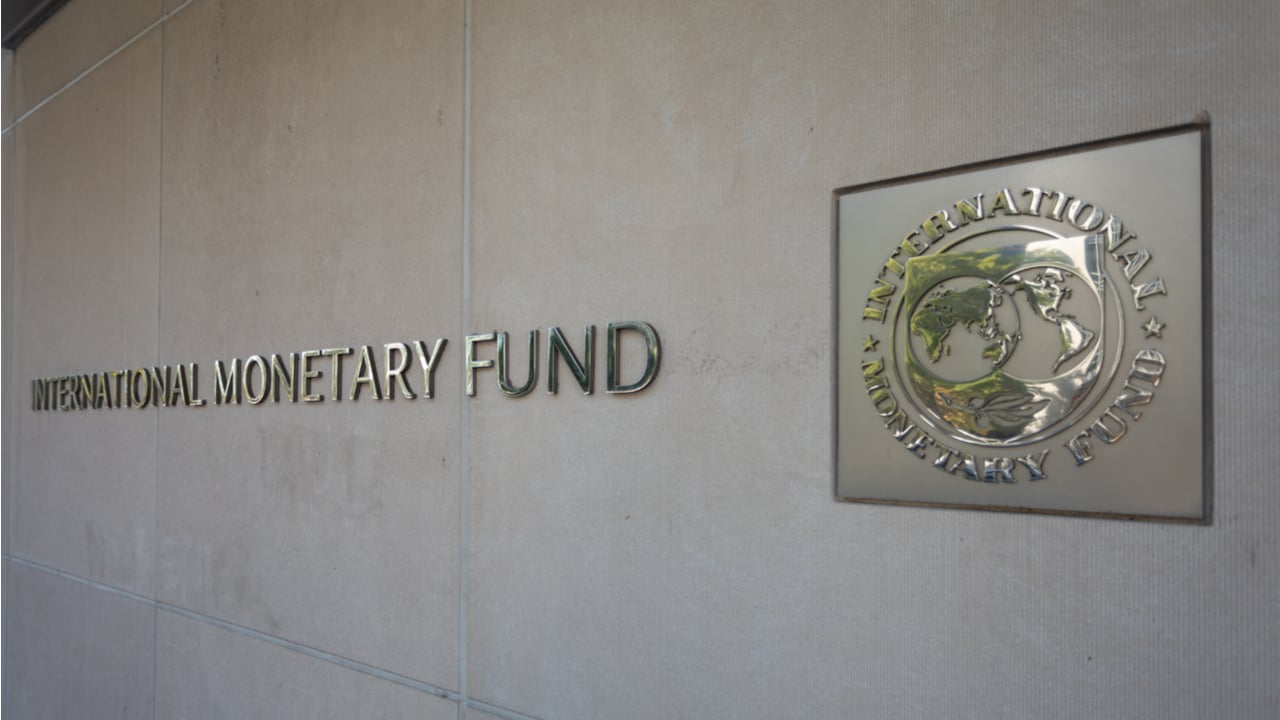 The International Monetary Fund has mentioned it is providing technical assistance to the government of El Salvador in various ways. According to Gerry Rice, a spokesperson for the organization, the group is having talks with people of the Salvadoran government about tax and money laundering matters, including critical issues that the IMF raised in earlier […]
The International Monetary Fund has mentioned it is providing technical assistance to the government of El Salvador in various ways. According to Gerry Rice, a spokesperson for the organization, the group is having talks with people of the Salvadoran government about tax and money laundering matters, including critical issues that the IMF raised in earlier […]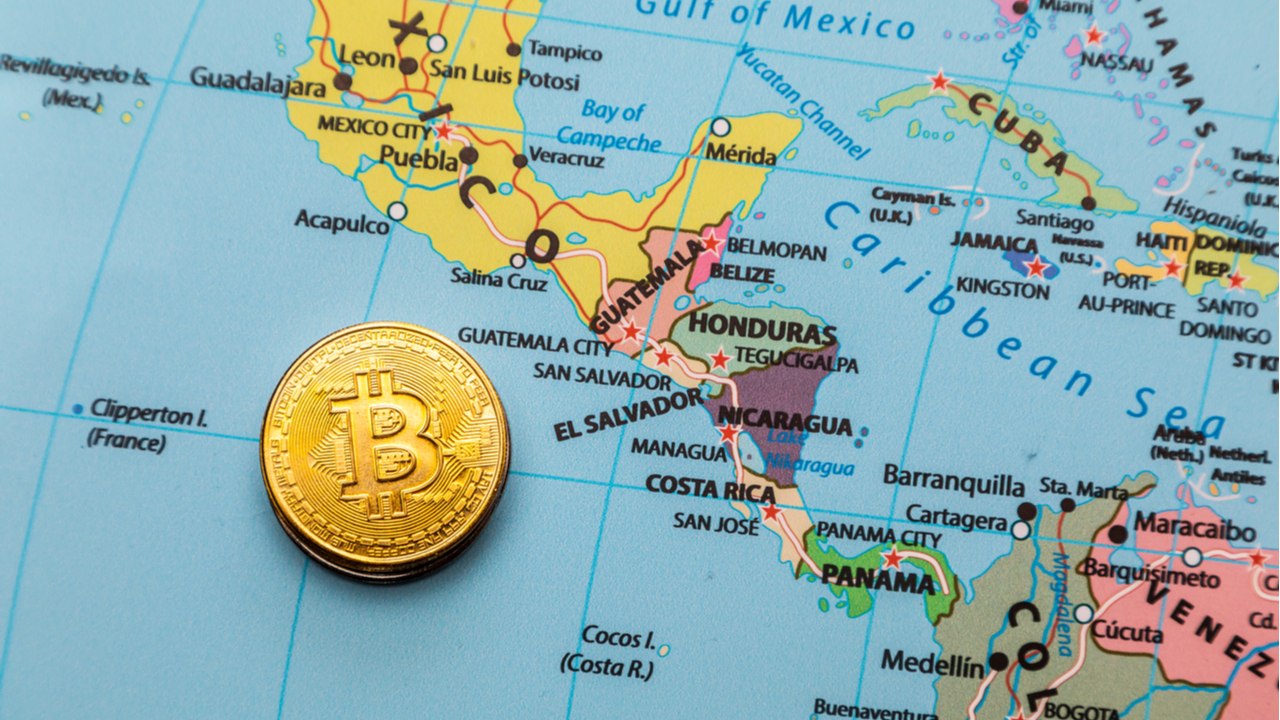 The date of the launch of the Salvadoran bitcoin bonds, the instrument that would serve to build the announced Salvadoran Bitcoin City, is still unknown. Announced to be released earlier this year, the launch has been affected by the current war in Ukraine, and the deceleration of global markets. According to Treasury Minister Alejandro Zelaya, […]
The date of the launch of the Salvadoran bitcoin bonds, the instrument that would serve to build the announced Salvadoran Bitcoin City, is still unknown. Announced to be released earlier this year, the launch has been affected by the current war in Ukraine, and the deceleration of global markets. According to Treasury Minister Alejandro Zelaya, […]
The Turkish President welcomed Nayib Bukele to Ankara for an official state visit. Anyone expecting a Bitcoin talk left disappointed.
Bitcoin (BTC) took more than just a beating in the markets. The orange coin got the cold shoulder as Turkish President Recep Tayyip Erdoğan welcomed his Salvadoran peer Nayib Bukele in the capital of Turkey to talk about a number of topics. While Bitcoin failed to be a talking point, it did not stop the Twitter rumor mill from going into overdrive.
As part of the state visit, Bukele and Erdoğan kicked off with an official ceremony. Shortly afterward, they inaugurated the new Salvadoran embassy before agreeing on six deals covering the economy, trade, defense, diplomacy and education.
The trade deals seek to increase trade volume between the two countries Turkey to $500 million in 5 years. Trade volumes for 2020 and 2021 were $27 million and almost $50 million respectively.
Mainstream media outlets watched closely to see if Bukele would attempt to orange-pill Erdoğan. However, there was no mention of Bitcoin or cryptocurrency during Thursday proceedings.
That did not stop Twitter from speculating and deceiving audiences about the nature of the encounter. A coordinated news burst made by fake Twitter accounts imitating popular accounts @Deltaone, @Zerohedge, and a Bukele parody account @LaDictatore simultaneously announced that Turkey would announce Bitcoin as legal tender by February 2022.
The announcement was false. LaDictatore’s account has since been suspended but the screenshot of their announcement lives on:

In the hours following the fake news, the Bitcoin bulls regrouped to pump the price to within touching distance of $43,000 before falling off a cliff to $38,000 this morning.
Related: El Salvador explores low-interest loans backed by Bitcoin
As the Turkish Lira continues to struggle, analysts expected Bukele to make the case for Bitcoin. Given that the Turkish ruling party recently held a meeting in the metaverse, the tide may be turning. And if any discussion did happen Thursday, it happened behind closed doors.
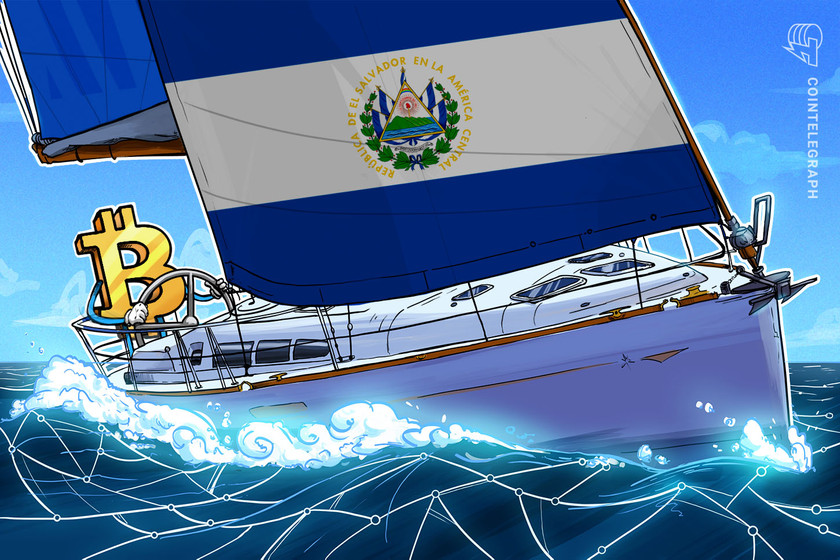
The adoption of Bitcoin is changing El Salvador’s economic landscape, according to the Salvadoran president.
On Thursday, Salvadoran President Nayib Bukele reaffirmed his belief for Bitcoin (BTC) supremacy on Twitter once again, this time stating that after widespread adoption occurs, “it’s game over for fiat.”
The Salvadoran president has been a mainstay in news headlines due to his government’s regular BTC purchases and absolute pro-Bitcoin stance. He has made frequent statements and comments to support the original cryptocurrency while refusing to budge in the face of criticism that Bitcoin is a bad idea for the nation.
Related: El Salvador buys a smokin’ hot 420 more Bitcoin
President Bukele’s recent tweet comes as the international community launches a barrage against El Salvador for its “Bitcoin experiment.”
The International Monetary Fund criticized El Salvador’s move to adopt Bitcoin as legal tender in June, but the country nevertheless passed it and began accepting BTC as legal money in September. Andrew Bailey, governor of the Bank of England, is a known critic of Bitcoin. More recently, while speaking at the University of Cambridge Students’ Union, Bailey expressed his concerns over El Salvador’s decision to use Bitcoin as a currency due to its extreme volatility.
What has been called by international organizations as “The #Bitcoin Experiment”, is nothing more than the world watching how mass adoption changes a country’s economy.
— Nayib Bukele (@nayibbukele) December 23, 2021
If it’s for the good, it’s game over for FIAT.
El Salvador is the spark that ignites the real revolution.
However, Bukele fired back at his critics, pointing out that while the rest of the world regarded El Salvador as a “Bitcoin experiment,” it was transforming its economy with Bitcoin mass adoption. Bukele also claimed that when fiat is no longer a factor compared to BTC’s dominance, El Salvador will be regarded as the spark that starts the real revolution.
Since adopting Bitcoin as legal currency, El Salvador has used Bitcoin profits or the “surplus” from its Bitcoin Trust account to finance the construction of 20 schools. In mid-October, Bukele announced that the government would spend $4 million from the Bitcoin Trust to build a new veterinary hospital in San Salvador.
Bukele’s latest riff comes as El Salvador recently bought 21 BTC on Tuesday to celebrate the “last 21st day of the year 21 of the 21st century” and commemorate the scarcity of Bitcoin as its supply is limited to 21 million BTC.

El Salvador is looking to bolster adoption of its government-issued Chivo Bitcoin wallet by offering discounts on petrol purchases of $0.20 per gallon to consumers who pay using BTC.
Salvadoran president Nayib Bukele has announced that local consumers can enjoy a $0.20 per gallon reduction in petrol prices when paying using the government-backed Bitcoin wallet, Chivo.
Describing the news as “positive news for the pockets of Salvadorans,” the president announced the subsidy via Twitter on Sept. 30. According to a rough translation, Bukele stated:
"The state company Chivo negotiated with the largest gas station companies in our country, so that starting tomorrow, their stations will sell each gallon of fuel $ 0.20 cheaper, with Chivo wallet."
Bukele emphasized that there is no limit to the discount and that any local person or company can access the rebate. He added that the discount will erase “several increases in the international price of fuels” and “reduce transportation costs in supply chains.”
However, some Salvadorans appear unconvinced that the subsidy ultimately benefits the public, with Twitter user Adan_3840 responding:
“Those 20 cents will come from all of us, right? The gas station does not lose, there goes the refund after paid with the taxes of even those who walk on foot.”
Others were cynical of the government’s decision to offer the discount to only those who pay using Chivo, with another Twitter account questioning why the administration did not move to offer relief on fuel prices at an earlier date.
Alongside the news, Bukele also revealed that he has authorized a fund intended to “stabilize” the domestic price of liquified gas. The president asserted that while the international market had planned a $1.17 rise in the price of 25-pound cylinders of liquified gas, Salvadoran locals will experience “a slight reduction” in cost.
He added that the government will absorb the increase for one year only, noting any reductions in global gas prices will also be passed on to consumers during the period.
Related: El Salvador president teases geothermal Bitcoin mining farm
El Salvador became the first country to legally recognize Bitcoin as legal tender on Sept. 7. Later that month, Bukele claimed that one-third of Salvadorans were already using Chivo less than three weeks after its launch.
However, onlookers have expressed skepticism regarding Bukele’s reports of surging crypto adoption, with outspoken crypto critic and author David Gerard asserting that Salvadoran officials are “feeding Bukele numbers that please him” that “fall apart under the slightest examination.”
In his Attack of the 50 Foot Blockchain newsletter, Gerard analyzed Chivo usage metrics reported by Bukele to conclude that the government-backed wallet “would be doing more transactions a day than Visa does worldwide” if the President’s data were accurate.
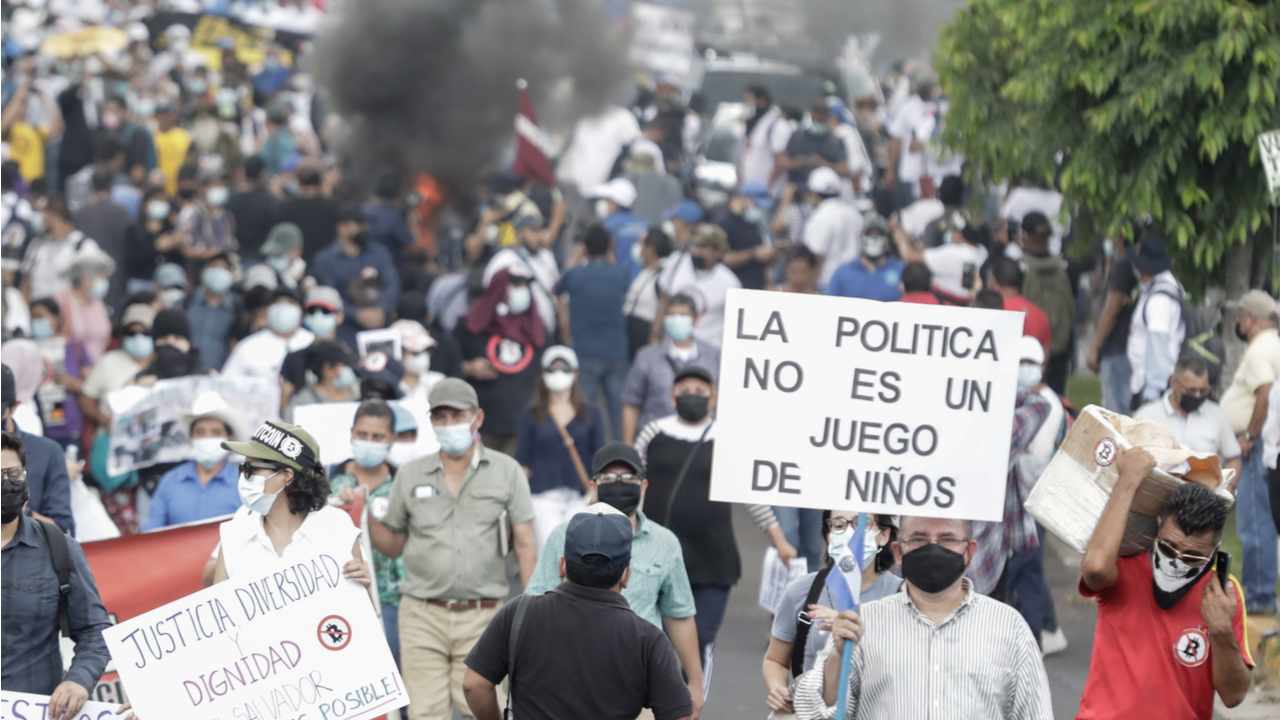 The adoption of bitcoin as legal tender in El Salvador has been one of the biggest events in the cryptocurrency world this year. However, Nayib Bukele, president of the country, has taken a course of action many consider mistaken. In any case, the Bitcoin Law has put Bitcoin in the global spotlight as a potential […]
The adoption of bitcoin as legal tender in El Salvador has been one of the biggest events in the cryptocurrency world this year. However, Nayib Bukele, president of the country, has taken a course of action many consider mistaken. In any case, the Bitcoin Law has put Bitcoin in the global spotlight as a potential […]